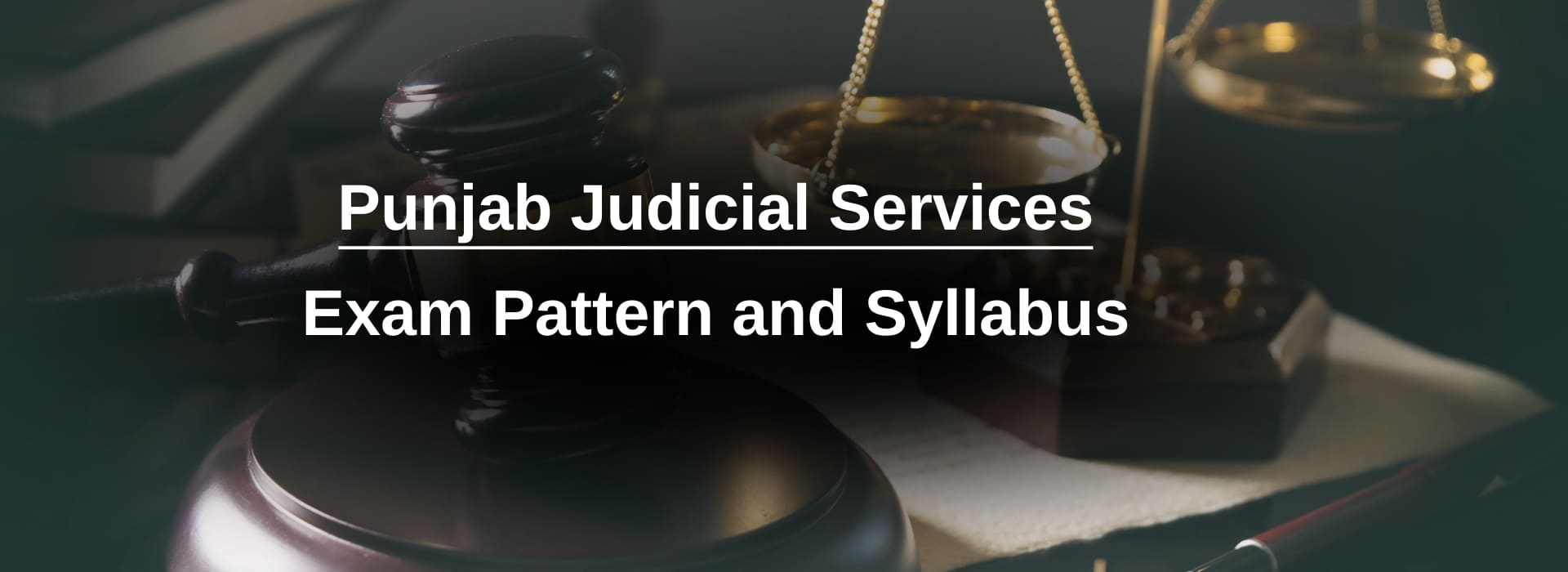
Punjab Judiciary Syllabus 2025: Key Topics and Sections
Looking to build a career in law? Check out the latest updates and important topics in the Punjab Judiciary Exam Syllabus 2025. This guide will help you stay on track and prepared for the upcoming exams.
The Punjab Judicial Service Examination is held every year by the Punjab and Haryana High Court for recruiting Civil Judges.
Complete Guide to the Punjab Judiciary Syllabus 2025
If you're preparing for the Punjab Judiciary Exam, it's important to go through each topic carefully. To make things easier for you, we’ve broken down the entire syllabus based on the different stages of the exam.
The Punjab Civil Judge Exam has three stages:
- Preliminary Exam – This is a multiple-choice question exam.
- Mains Exam – This exam is descriptive (essay-based).
- Viva-Voce (Interview) – A personal interview to assess your personality and communication.
Practicing with old question papers is a great way to improve your time management, speed, and accuracy. If you pass all the stages, you’ll be eligible for the Civil Judge post.
Let’s dive into the important subjects and exam pattern for each stage.
Punjab Civil Judge Prelims Syllabus 2025
Here are the main topics you need to cover for the Prelims:
- Basic Legal Knowledge: You should have a general understanding of various laws.
- Current Affairs: Be aware of national and international events and understand their importance.
- Indian Legal History and Governance: Learn about the development of laws in India and how the Constitution has evolved.
- Reasoning and Analytical Skills: The exam also tests your critical thinking and problem-solving abilities.
- Graduate-Level Understanding: The questions will test your ability to grasp complex legal concepts, so make sure you are prepared at a graduate level.
The Prelims exam focuses not only on your theoretical knowledge but also on how well you can apply it in real-life situations.
Punjab Civil Judge Mains Syllabus 2025
The Mains exam includes five papers: Civil Law I, Civil Law II, Criminal Law, English, and Punjabi. Here’s a breakdown of each paper:
Paper I: Civil Law (Important Topics)
| Topics |
|---|
| Code of Civil Procedure |
| Punjab Courts Act |
| Indian Contract Act |
| Indian Sale of Goods Act |
| Indian Partnership Act |
| Specific Relief Act |
| Transfer of Property Act |
| East Punjab Urban Rent Restriction Act, 1949 |
| Indian Evidence Act, 1872 |
| Limitation Act |
Paper II: Civil Law (Important Topics)
| Topics |
|---|
| Hindu Law |
| Mohammedan Law |
| Customary Law |
| Law of Registration and Limitation |
Paper III: Criminal Law (Important Topics)
| Topics |
|---|
| Indian Penal Code |
| Code of Criminal Procedure |
| Indian Evidence Act |
Paper IV: English Language (Important Topics)
| Topics |
|---|
| English Essay (1000-1100 words) |
| Precis Writing |
| Words and Phrases (Create sentences with the given words and phrases) |
| Comprehension |
| Corrections (Grammar and Sentence correction) |
Paper V: Punjabi Language (Important Topics)
In this section, you’ll be tested on your proficiency in Punjabi in the Gurmukhi Script.
Paper VI: Viva-Voce (Interview)
The purpose of the Viva-Voce is to assess your personal qualities such as:
- Personality
- Communication skills
- Presence of mind
Key Takeaways for the Punjab Judiciary Exam 2025
- Be Thorough: Make sure you understand all the topics for the Prelims, Mains, and Interview.
- Exam Stages: Prelims will be multiple-choice, Mains is essay-based, and the Viva-Voce will test your personal qualities.
- Practice: Solve previous years' papers to get better at time management, accuracy, and speed.
- Master the Subjects: Deep knowledge of law subjects, Indian legal history, governance, and current events is essential.
- Sharpen Your Analytical Skills: The exam will test your critical thinking and ability to apply legal knowledge in practical situations.
- Prepare for Complex Legal Concepts: Expect to deal with advanced legal topics that require a strong understanding.
- Language Proficiency: Your language skills will be tested in English and Punjabi, especially in writing and comprehension.
- Real-World Knowledge: The exam ensures you can apply your knowledge to practical scenarios.
- Interview: Your personality and communication will play a significant role in the final selection.